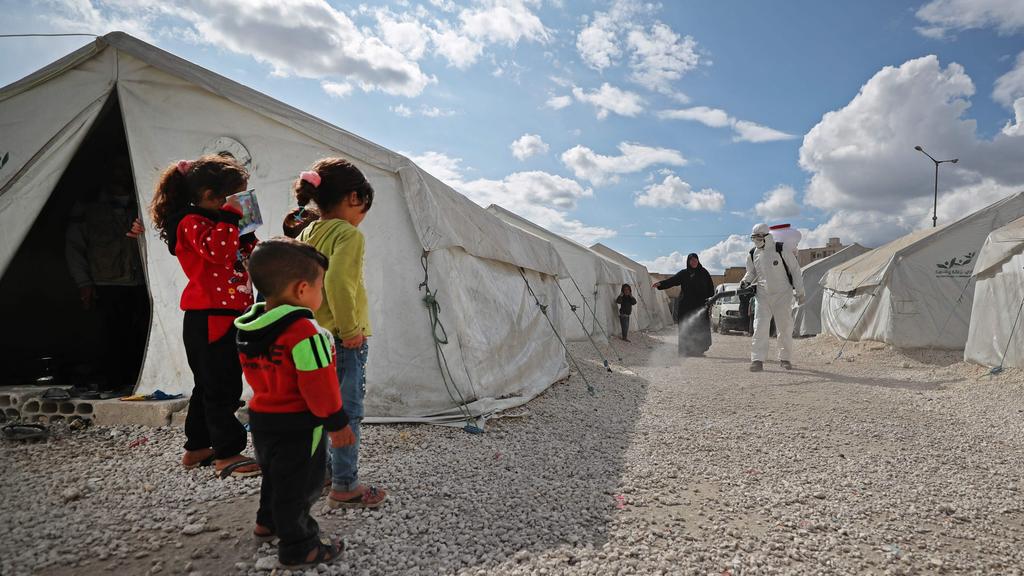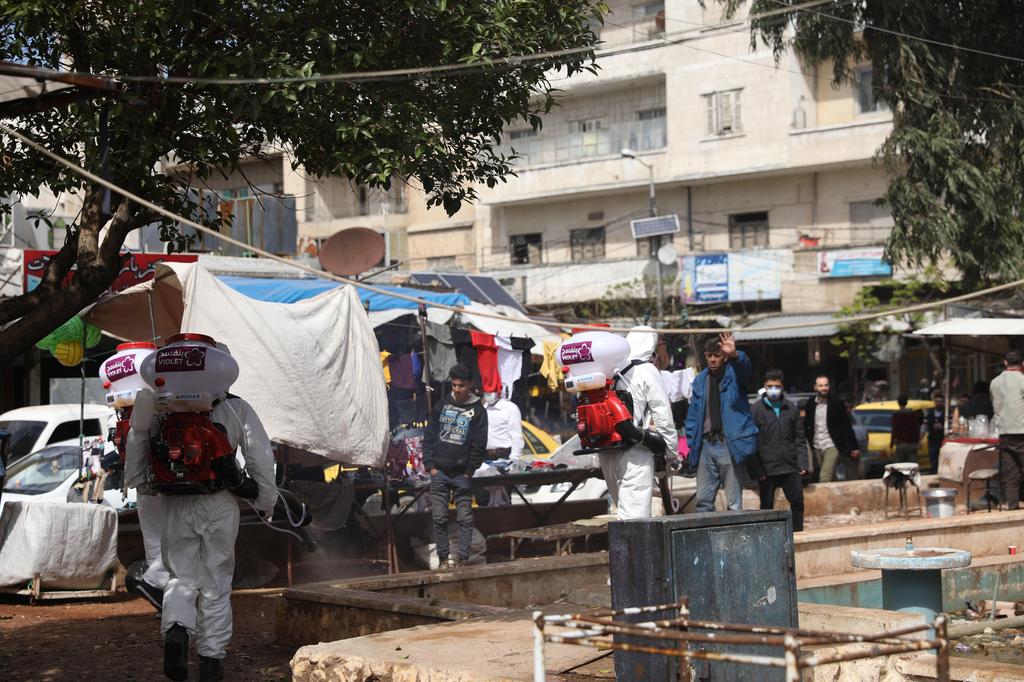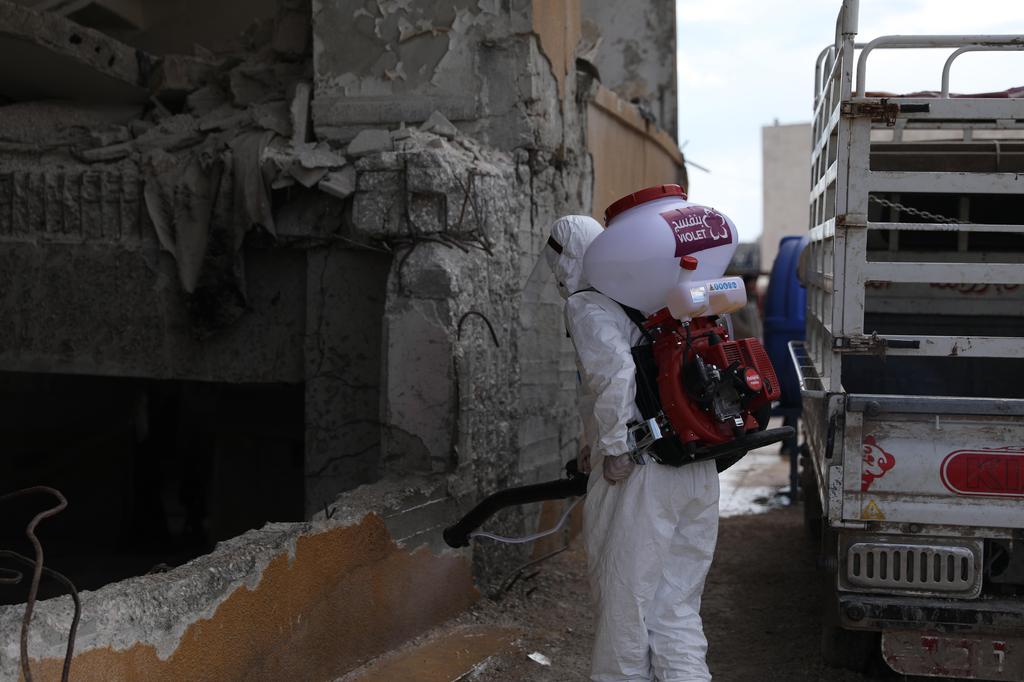Getting your Trinity Audio player ready...
Thousands of displaced Syrians have begun moving back to their homes in war-torn Idlib province despite the risk of renewed conflict, some driven by fear that the new coronavirus could wreak havoc on crowded camps near the Turkish border.
About one million Syrians fled Idlib and its surrounding countryside in northwest Syria this past year after Russian-backed government forces stepped up a campaign to retake the last rebel stronghold after nine years of war.
3 View gallery


Displaced Syrian children watch as a sanitation worker disinfects their camp next to the Idlib municipal stadium
(Photo: AFP)
Fighting has calmed since March when Ankara, which backs some groups opposed to President Bashar al-Assad, agreed to a ceasefire with Moscow, which has supported Damascus with heavy airpower.
Syria’s northwest does not yet have a confirmed case of coronavirus, but doctors fear the area’s ravaged medical infrastructure and overflowing camps would quickly turn any outbreak into a humanitarian disaster.
As the tentative peace holds, displaced Syrians are weighing up grim options: remain in tightly packed camps with few services where a viral spread could be lethal, or return to homes still at risk of getting caught in renewed bloodshed.
3 View gallery


Volunteers from 'Violet Organization' wear personal protective equipment during a disinfection operation in Idlib, Syria
(Photo: EPA)
“Our lives go from danger to danger as we flee from bombing, the regime, and conflict, to overcrowding and coronavirus,” said Abu Abdo, 45. On Sunday Abdu returned with his family of seven to a village in Idlib’s countryside.
“Here it’s agricultural land and the air is clean and there’s no congestion, but it’s still a dangerous area,” he said.
Vans and trucks stacked with mattresses and household appliances choked a road snaking south through Idlib province on Sunday as families driven out just months earlier by airstrikes sought to return.
3 View gallery


A volunteer health worker during a disinfection operation in Idlib, Syria
(Photo: EPA)
“We fear there will be a regime escalation again but life in the town, in our home, is better than displacement and poor conditions,” said Fayez al-Assi, 49, who fled Jabal al-Zawiya in Idlib’s southern countryside two and a half months ago.
The Syrian Response Coordination Group, a northwest Syria relief agency, said 103,459 Syrians had returned to towns in the Aleppo and Idlib countryside since the ceasefire.
“Even if there is bombing we aren’t afraid of it. We’ve gotten used to it,” said Zakaria Shawish, 25, from the town of Ariha, south of Idlib. “Sitting here under the bombing is better than being displaced in the camps and not having a home.”

